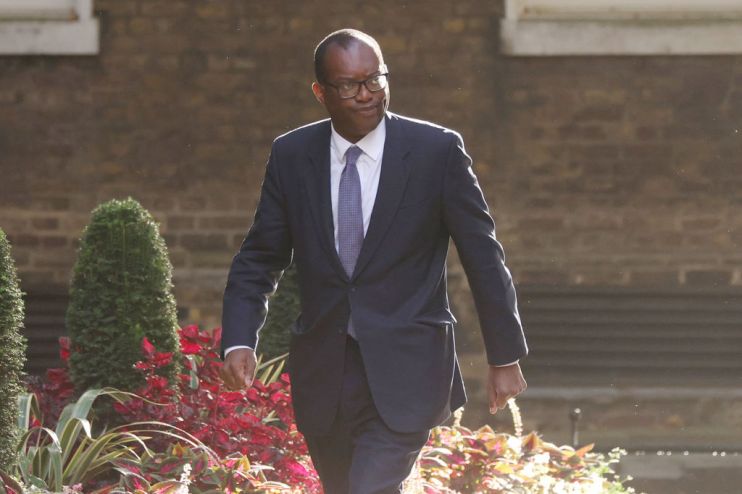Energy bills is Kwarteng’s first priority, then we must claw back our dismal productivity

A looming 15-month long recession. Highest debt burden since the 1960s. Biggest living standards shock on record. It’s not the best time to be managing the UK economy.
But that’s exactly what newly appointed chancellor Kwasi Kwarteng has been tasked with. His problems can be split into three categories: short, medium and long term.
Kwarteng’s immediate priority is delivering the cost of living care package announced by new prime minister Liz Truss.
Capping energy bills for everyone at £2,500 for two years provides support for all households. It’s pretty easy to roll out with speed. The scale of the living standards shock hurtling down the road meant Truss had to do something drastic and at scale.
But it will cost a lot. We’re still hazy on the details, but it is the biggest peace time fiscal intervention and has been billed at around £150bn.
It wasn’t the only option available. Experts at the National Institute of Economic and Social Research (NIESR) tabled a scaling unit energy price.
Basically, under the plan, the more energy you use, the more you pay, effectively resulting in richer households subsidising poorer households, keeping costs to a minimum. It would also be more equitable than the confirmed package.
Instead, richer Brits will bag a bigger cash payout, but poorer households will be relatively better off.
Next on the chancellor’s plate is immediate tax cuts (on top of Truss shaving off green levies from energy bills). He has supported reversing the six percentage point corporation tax rise to incentivise investment. It could also help the pound, but the UK’s large trade deficit will likely cancel that out.
Of greater importance is simplifying the tax regime over the medium-term horizon. It’s fiercely complicated, both for individuals and businesses, and often results in lost revenue.
Bank of England governor Andrew Bailey has fielded repeated questions about whether the monetary authority needs a talking to as inflation surges to five times its 2 per cent
target. But at his first meeting with the governor last week, Kwarteng softened the combative tone Truss set during the Tory leadership campaign. A jilted relationship between a country’s government and central bank is bad for its economy. It would be even worse if monetary policy was tied to politics and what will win votes, not what’s needed to manage inflation.
Questions should be asked of Bailey’s more than two year tenure. Inflation topping 10 per cent simply isn’t a good look. But, given the government is going to inject billions of pounds by pegging energy bills, the Bank needs to be left to its own devices and allowed to raise rates.
Long term, the structural dynamics that drive the UK’s economy have shifted. Intense geopolitical tensions, supply chain breakdowns and jammed up energy markets have compounded to produce the worst inflation surge in generations.
Reforming the UK’s energy market by boosting renewable domestic energy supply will reduce the country’s exposure to future terms of trade shocks. It should generate jobs and accelerate the drive to net zero.
But above all else, the chancellor has to drag the UK’s dismal productivity levels out of the gutter. Nothing is more important to improving living standards, boosting growth and taming inflation than strong and sustained productivity growth.
Kwarteng’s brief is probably the worst facing any chancellor since Gordon Brown’s second-hand man Alistair Darling’s during the financial crisis of 2008.
Time to get to work.